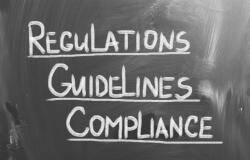The Internet has taken the world by storm in last few decades. Some of the surveys show that it has grown over 2000% in last 10 years. Imagine how many people globally are online at any point of time. Being social animals, we like to talk about our feelings, good or bad, with our family & friends.
Today people are using internet for communication more, than any other medium, This has given birth to social media sites like Facebook, Twitter, orkut, myspace, digg & the list will go on. Imagine how much data is collected on these sites in one day.
So companies have started using this huge unstructured text data in these comments, sentiments of people for their product improvements, for Customer service improvements, for understanding what customers are talking about competitors. This is called Social Media Analytics.
In the recent example of Toyota recalls, they are closely watching these social sites to gauge what Customers are talking about their brand, quality & take necessary measures to correct their actions.
But social media analytics isn’t just about damage control, it can provide precise data to help you better understand your customers and discover new business opportunities.
Here are typical steps in implementing social media analytics.
- Collect the huge amount of unstructured data – comments, blogs, call center notes, twits from social sites
- Using statistical analysis & Natural Language processing (NLP) on texts & words to break up the information into good or bad
- Use categorization, classification & association methods for text processing
- Further identify the categories on which these good or bad sentiment are applicable from the data
- Brand awareness, trust, loyalty
- Customer service
- Product improvements
- Competitor analysis
- Geographic locations
- Produce the results using visualization tools
Here is how various businesses are using Social Media Analytics:
- Manufacturing – using the warranty data combined with Customer complaints to improve products & reduce warranty costs
- Healthcare – find connections amongst the claims received to flag further frauds
- Banking & Finance – use the social network profiles data to improve credit calculations, identify reasons for Customer churn
- Insurance – claims cost prediction& fraud detection
- Telecom – improve customer experience for new products introductions
- Hospitality & Travel – listen to guests comments to improve repeat customer rates
Social Media Analytics will continue to gain importance in the near future !






